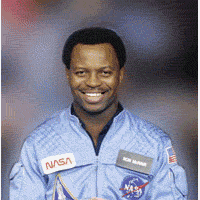McNair Scholars Program:
The Ronald E. McNair Post-Baccalaureate Achievement Program is one of eight Federal TRIO Programs designed to identify and provide services to individuals from disadvantaged backgrounds. The SOU McNair Program is committed to assisting student scholars to successfully complete their undergraduate education, enroll in graduate school, and develop the knowledge and skills required to successfully complete a research intensive doctoral program (for example: a Ph.D., or an Ed.D., or a D.P.A., or a D.A. or a D.F.A, or a D.M., or a D.P.H. or a D.S.W., or a D.P.E., or a D.M.L, or a D.Des., or a D.Sc./Sc.D., or a D.N.Sc.). Nationally, students from low-income backgrounds are eight times less likely to complete a bachelor degree than non-disadvantaged students.
Benefits of Pursuing a Ph.D.
1. A Ph.D. certifies recipients for careers in the research community and Higher education.
2. Develops a strong foundation for career success and mobility.
3. Lower unemployment rate for those who have a Ph.D.
4. Higher Lifetime earnings (Ph.D. = $ 3.4 million estimated lifetime earnings!)
McNair Program Timeline:
The McNair Cohort year begins on January 1 each year. All scholars are required to attend the McNair Seminars taught by the Program Director as these seminars are designed to enhance the success of the scholars in their preparation for doctoral programs. The seminar meetings are scheduled from 7 to 7:50 am on selected Tuesdays and Thursdays to avoid conflict with other academic scheduling.
About Dr. Ronald E. McNair:
The McNair Program is named after Dr. Ronald Erwin McNair, who died in the Challenger Explosion in 1986. McNair was born on October 21, 1950 in Lake City, South Carolina, and graduated as valedictorian from Carver High School in 1967. In 1971, he graduated magna cum laude from the North Carolina A&T State University with a Bachelor of Science degree in Physics. He then enrolled in the Massachusetts Institute of Technology and in 1976, at the age of 26, he earned his Ph.D. degree in Laser Physics. Dr. McNair soon became a recognized expert in laser physics while working as a physicist with the Hughes Research Laboratory. He was selected by NASA for the Space Shuttle Program in 1978, and was a mission specialist aboard the 1984 flight of the Shuttle Challenger. A sixth degree black belt Karate instructor and a performing jazz saxophonist, he also enjoyed running, boxing, football, playing cards, and cooking. He is survived by his wife and two children. After his death in the Challenger Explosion in 1986, members of Congress provided funding for the Ronald E. McNair Post-Baccalaureate Achievement Program to encourage students from low-income, first-generation college backgrounds, or who are students from groups traditionally underrepresented in graduate education to continue to a doctoral degree. Ronald E. McNair "represents an outstanding role model of achievement," said the South Carolina delegation to Congress. This program is dedicated to the high standards of achievement inspired by Dr. McNair's life.





